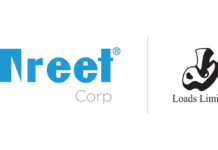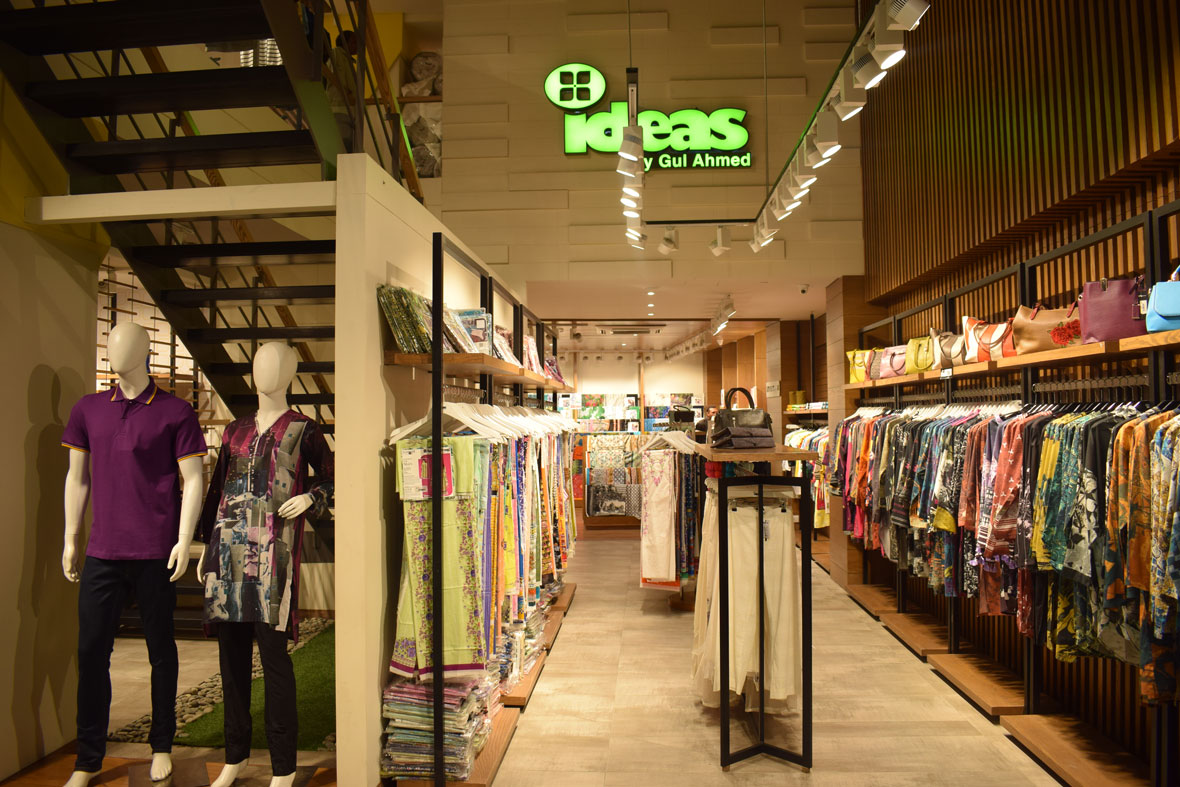For the past five years, Gul Ahmed’s management has been telling anyone who will listen the following: the company is shifting its focus towards its domestic retail side and away from its traditional export business. And while the company has had considerable success in doing so, the recent economic slowdown in Pakistan, coupled with the decline in the exchange rate, has meant that the company’s export business has done better this year than its domestic retail business.
“Gul Ahmed Textile Mills Ltd topline shows a growth of 19% with 30% growth in export-based revenue while local sales shows meagre of 4% mainly because of slowdown in local sales from Ideas,” wrote Saad Hanif, a research analyst at Insight Securities, a securities brokerage firm, in a note issued to clients on December 11.
The slowdown in retail sales appears to be relatively recent, with the company having grown its domestic business by an average annual growth in sales of 26% per year for the past three years. The general economic slowdown appears to be at least part of the reason for the slump this past quarter. However, analysts believe the government’s decision to change the tax structure facing domestic retailers is also part of the reason.
“We believe the imposition of the 13% sales tax on local sales will impact the sector negatively,” wrote Hanif.
The sales tax referenced in the Insight Securities note is a 13% general sales tax imposed by the federal government on the retail sector, and represents a reduced sales tax for retailers who decide to register their businesses with the Federal Board of Revenue (FBR), as part of the government’s drive to document the economy. The new rules target large retailers like Ideas by Gul Ahmed in particular.
As Shahbaz Rana writes in The Express Tribune, the government defines “Tier I retailers” as “those that operate a unit of a national or international chain of stores; retailers operating in an air-conditioned shopping mall, plaza or centre, excluding kiosks; retailers whose cumulative electricity bill during the immediately preceding 12 consecutive months exceeds Rs600,000; and wholesalers-cum-retailers engaged in bulk import and supply of consumer goods on a wholesale basis to the retailers as well as on a retail basis to the general body of consumers.”
Nonetheless, the imposition of the new taxes are likely to be a relatively minor bump in the road to Gul Ahmed’s plans to create a large national retail chain focused on serving the needs of middle class Pakistani consumers rather than exporting clothes for global multinational brands where the bulk of the profit margin is captured by the owners of the brand rather than the manufacturers.
The idea behind the pivot towards retail is something that management has been working on for a long time. Gul Ahmed, unlike many of Pakistan’s textile exporters, has had a domestic retail brand presence in the Pakistani market for decades. The Ideas shops have existed for well over a decade now. However, what is new is the notion that the company would seek to derive the majority of its revenue from retail.
That decision appears to be driven by CEO Zaki Bashir, son of founder Bashir Ali Mohammad, a textile magnate whose family has been in the cotton business since the 1940s and, for several decades, also owned the largest Pepsi bottling company in Pakistan.
Zaki, a graduate of Babson College in the United States, joined Gul Ahmed in 2005 where he learned the ropes from his father before transitioning towards becoming the CEO of the company in 2014, around the time that he decided that the retail business could become the core of the company.
It was taken at a time when Pakistan’s textile manufacturers were suffering from a chronic shortage of reliable supplies of natural gas to run their manufacturing units. Given the process-oriented nature of their equipment, even the mildest interruptions caused delays for hours, which in turn made it difficult to meet tight export order deadlines.
Meanwhile, domestic retail was beginning to boom off a rapid increase in female labour force participation. Between 2001 and 2013, the labour force participation rate for women in Pakistan jumped from just over 16% to a little over 24%, a leap that has translated into an extra 9 million women in the labour force. These women span the gamut of the labour spectrum, from blue collar work that was at times considered out of bounds for them, to white collar work in an increasingly sophisticated corporate sector in the country.
And, as with any rise in female workforce participation rate, these women need clothes to wear to work, which in turn has led to a boom in clothing designers for women. And the clothing of choice for most working women is “lawn”, a type of light cotton cloth that is both cheap and tends to look good.
Lawn clothing can be the kind of cheap clothes women wear to work in offices and service positions and it can be the kind of expensive clothes that rich women wear at high-society parties. In other words, it is a highly versatile segment of the clothing market, through which a textile company can serve pretty much every kind of woman in the country. And given their increasing labour force participation and economic empowerment, there are a lot more women to serve.
Retailers such as Khaadi and Junaid Jamshed were beginning to make serious money off of serving the domestic market. Gul Ahmed, the original manufacturers of lawn could not afford to be left behind the trend.
The recent slowdown in the company’s domestic sales are likely a minor hiccup from which the company will likely recover should management decide that they want to continue investing in their local operations, which appears likely based on the management’s stated priorities.




















If the rupee is to be left to market forces then it’ll keep depreciating and that will benefit exporters more than those targeting Pakistani consumers. In fact Pakistani consumers’ buying power will be reduced due to inflation caused by a constantly depreciating rupee. So Gul Ahmed should consider these macroeconomic factors as well.
Comments are closed.